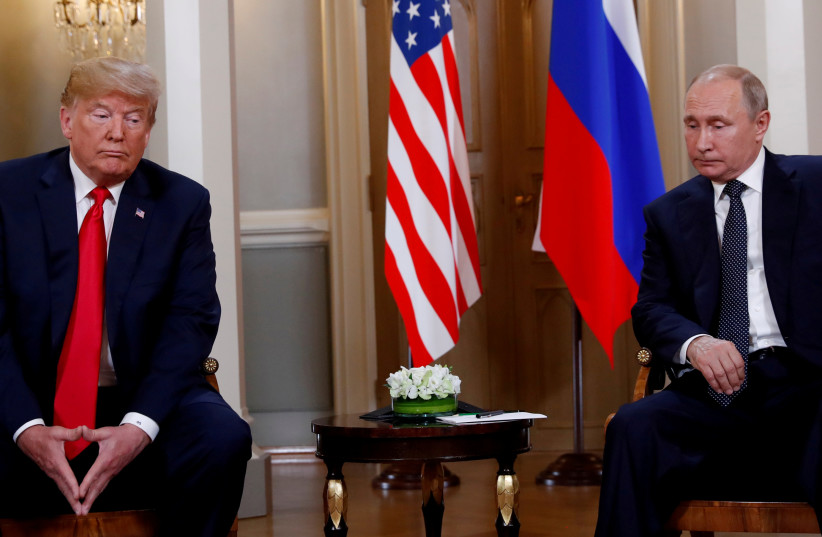A recent poll indicated that two-thirds of Israelis hope that former President Donald Trump will defeat the incumbent, Joe Biden, in the November presidential elections in America. It is indeed unpleasant to hear the president and other senior Democrats criticize Israel’s elected leader (although polls indicate that most Israelis share those very same opinions).
But before embracing Trump, who has also called on Prime Minister Benjamin Netanyahu to end the war, it is worth reviewing some of his statements and actions, and to consider their implications for the future of the world as we know it, including for Israel. Two of his comments at a recent election rally in South Carolina merit special attention.
Trump believes that foreign assistance (of which Israel is the foremost beneficiary) must no longer be a grant, but should be structured as a loan, with Washington able to demand repayment in certain circumstances. It should be noted that due to internal political considerations, Trump supporters in Congress are currently delaying the allocation of an aid package that includes unprecedented assistance for Israel, as proposed by the administration, in order to cope with our current crisis.
On a matter seemingly unrelated to Israel, Trump announced that he would encourage Russia to invade any country that is a member of NATO and does not contribute adequately (and let us ignore Trump’s personal familiarity with unpaid debts, having had six bankrupt businesses from 1991-2009).
Some consider his threats to be a means to pressure European countries to pay up. Indeed, there have been visible changes in this respect, along with growing concerns about an unpredictable leader who does not consult, expects full obedience and loyalty, and has an as-yet unexplained relationship with Russia and its recently reelected fifth-term president Vladimir Putin.

Many in Europe are convinced that Trump’s re-election will hand Ukraine to Russia, which will subsequently take over independent countries that were part of the Soviet Union, including the three Baltic states of Estonia, Latvia and Lithuania, now members of NATO and of European structures. Even those in Europe who are not concerned by the possibility of a direct assault worry about the outcome of a weakened trans-Atlantic alliance, which has been a cornerstone of the world order since the end of World War Two.
Isolationist resurgence
THIS SHOULD surprise no one. Trump’s term as president (2017-2021) saw the renaissance of isolationist discourse. America First, which was popular between the world wars – and was dealt a blow immediately after the Japanese attack on Pearl Harbor, when America entered the war – again flourishes in America. Trump continually criticizes international arrangements such as the United Nations and NATO, and withdrew from multilateral agreements negotiated by his predecessors, among them the Paris Agreement on global warming.
Such introversion naturally undermines America’s international standing, and there is no shortage of candidates to fill the vacuum created by its diminishing influence, notably Russia and China. Its shrinking stature will hurt its allies, especially those countries that rely heavily on its support, and there is no need to elaborate the extent of Israel’s dependence on this most influential and important world power.
If that were not enough, one should also look at his problematic utterances regarding Jews. Several days ago, and apparently based on his conviction that he did more for Israel than any other president, he said that Jews who vote for Democrats hate their religion and Israel.
Resorting to antisemitic stereotypes, he told a gathering in Florida in 2019 that they would vote for him because of his position against taxing wealth, and said to an interviewer in 2021 that in the past, Israel had absolute power over Congress.
He has made statements implying that American Jews have dual loyalty, reportedly stated that Hitler also did some good things, and claimed that there were fine people on both sides of the white supremacy parade in Charlottesville in 2019, which resulted in the death of a counter-demonstrator.
It behooves those Israelis and their supporters who yearn for the return of Donald Trump to consider all of the above, and its implications for Israel and for Jews.
The writer was Israel’s first ambassador to the Baltic states after the disintegration of the Soviet Union, ambassador to South Africa, and congressional liaison officer at the embassy in Washington. She is a graduate of Israel’s National Defense College.
